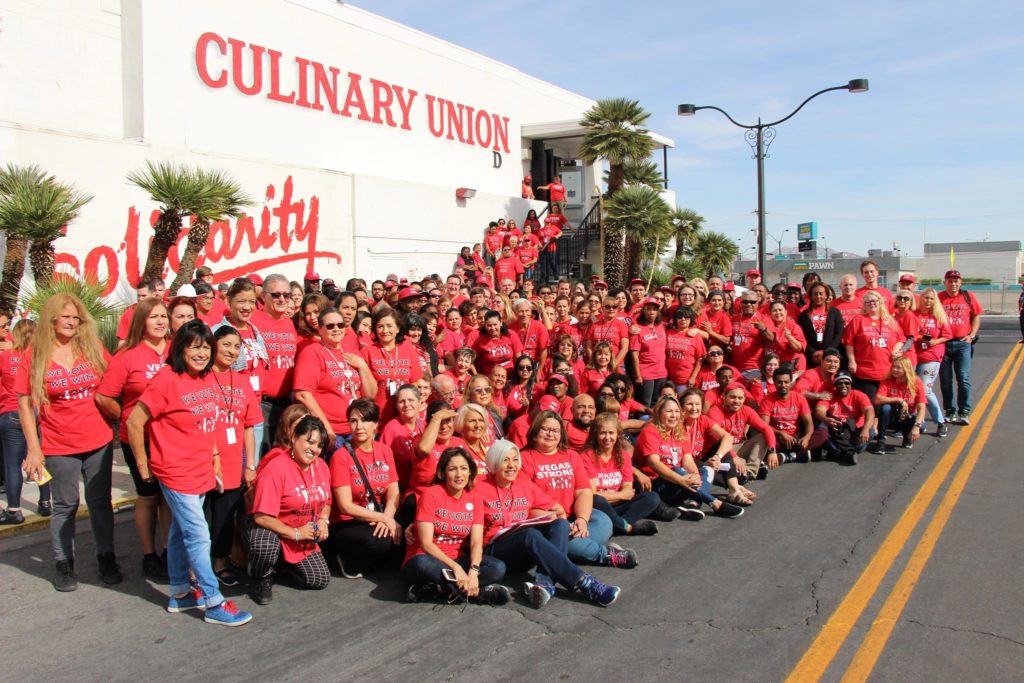Real Unions vs. Leftist Fantasy Unions

Too often, the left has an idealistic view of unions as leftist fighting organizations. Very occasionally, they are. More commonly, they are complex beasts with a variety of self-interested positions, complex personalities, and hard-bargained wins that they aren’t real inclined to give up for some vague reason. When the fiction and reality run up against each other, it often leads to leftists calling unions “sellouts” who are betraying the working class. I actually have some sympathy for this point, even if I think it is short-sighted and wrong. Part of the reason for that sympathy is that most people simply don’t even know about unions, not in the real world. And when they do, it’s usually either the building trades or the public sector unions, neither of which are the kind of mass-based political organizations that they imagine. Plus, there’s no question that unions do make cold calculations to support their own members over the larger working class. This can lead to some bad choices. One example of this is a few years ago when the United Food and Commercial Workers and a few other unions wanted an exception to California’s increased minimum wage to protect its smaller wages but higher benefit packages it had negotiated. This was too far for me–“join a union and make less money!”–but I can see why they would take the position. They had fought hard for what they had! But in that case, you had an already passed law that would help their members, at least on the wages.
We saw this complex interaction between fantasy and reality in the last week with the Culinary Union in Nevada coming out in opposition to Bernie Sanders’ Medicare plan, for the reason that they aren’t going to give up real hard-earned gains on the chance that maybe this new plan is better. This led to a lot of outrage and anger. And again, I get it. It’s not actually the position of solidarity that we want unions to have. But I get the other side of that too. Kim Kelly, who is one of the finest working labor reporters today, has a really good piece on all of this:
The union continued to stick to its guns on health care even after kicking up a multiday controversy that threw a harsh spotlight on its electoral maneuverings. On February 11, a few hours after I met with Maria Clara at the Culinary 226 office, the Nevada Independent broke the news that the union had circulated a bilingual candidate “scorecard” to its members that painted Sanders’ signature Medicare for All proposal in a decidedly negative light. The flyer stated that his single-payer plan would “end Culinary Healthcare” and “require Medicare for All.” Warren’s plan was targeted lightly in comparison, and moderate candidates like Joe Biden and Amy Klobuchar, who hold more centrist views on health care, were given neutral marks.
Twitter lit up after the news, with media pundits, outraged Sanders supporters, and voices from within the labor movement weighing in. Given that Sanders had tweaked his initial plan to accommodate union-negotiated plans like Culinary’s, many on labor’s left wing saw the news as a bald example of shortsighted union leadership run amok. Others offered critiques of Culinary 226’s overall political strategy and the iron grasp it keeps on its Taft-Hartley health fund. The majority expressed dismay at the union’s seeming lack of solidarity with the broader working class, viewing it as a missed opportunity to strengthen Culinary members’ economic positions by putting health care dollars back into their paychecks.
The prevailing argument for Medicare for All among many labor advocates has been that it could take health care off the bargaining table, freeing up their time and energy to fight for better wages and working conditions. This comes at a time when union health care plans are under threat; General Motors’ decision to pull coverage from its striking workers earlier this year is a sobering example of how tenuous a hold even the strongest unions have.
It’s unsurprising that Culinary 226 leadership would look askance at Medicare for All; to do otherwise would be asking its members to give up their top-of-the-line insurance in exchange for a vague promise of something better, or perhaps even something worse. “It’s too much, because we’ve been fighting to keep our health insurance, and then now they want to take it away,” Maria Clara told me when I brought up Medicare for All. “I don’t think it’s right, because we’re working hard to earn it.”
There’s a reason to have big slogans like Medicare For All. I appreciate that. But what I value in leadership is recognizing that any plan in the real world is going to have to build on actual functioning organizations that are going to want to protect themselves and then adjusting to that. The only way union health care goes away is if unions go away. And maybe that’s possible. But it’s very very very hard to tell workers to give up what they have and know in exchange for a vision of the future that is better.


